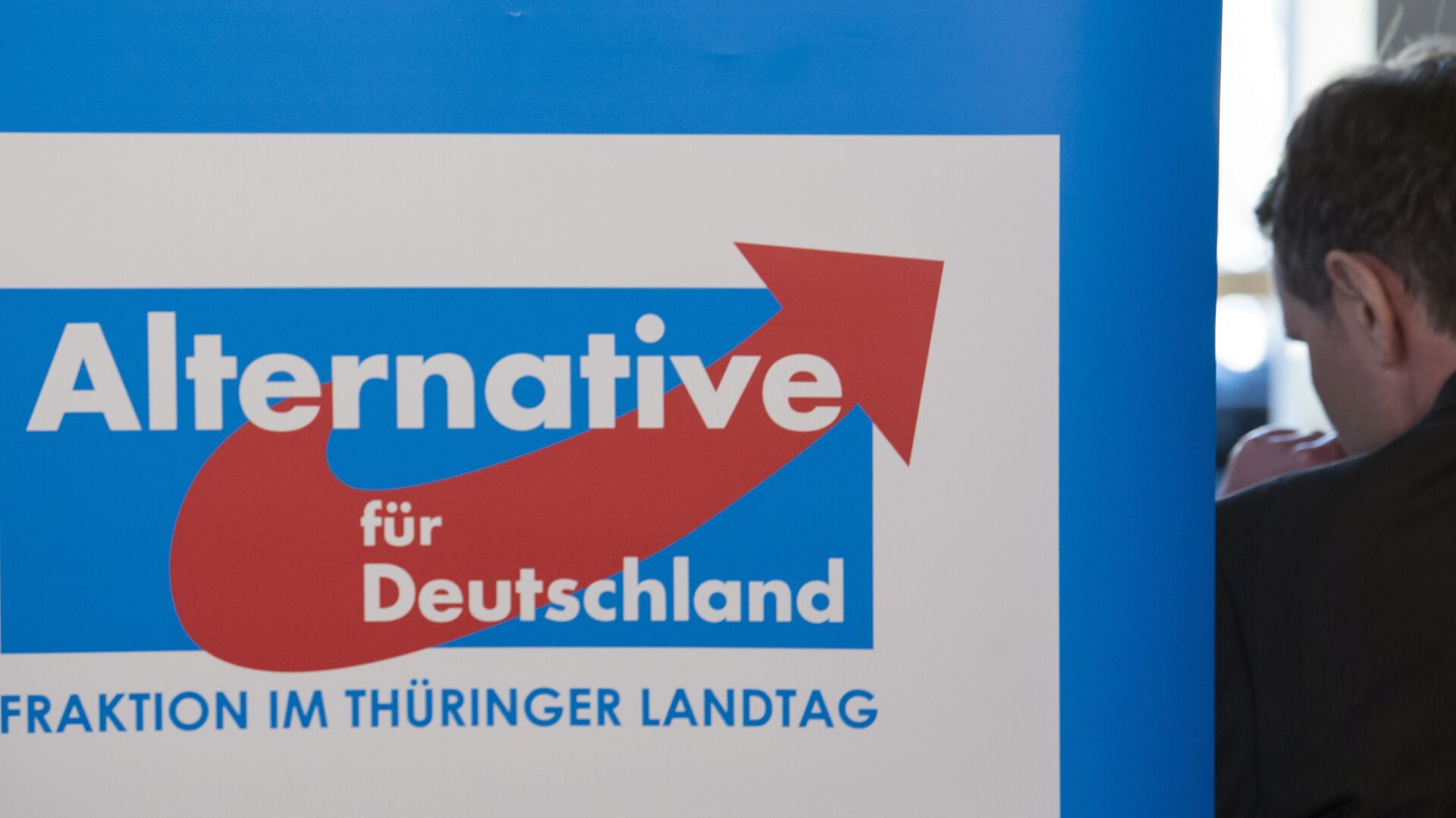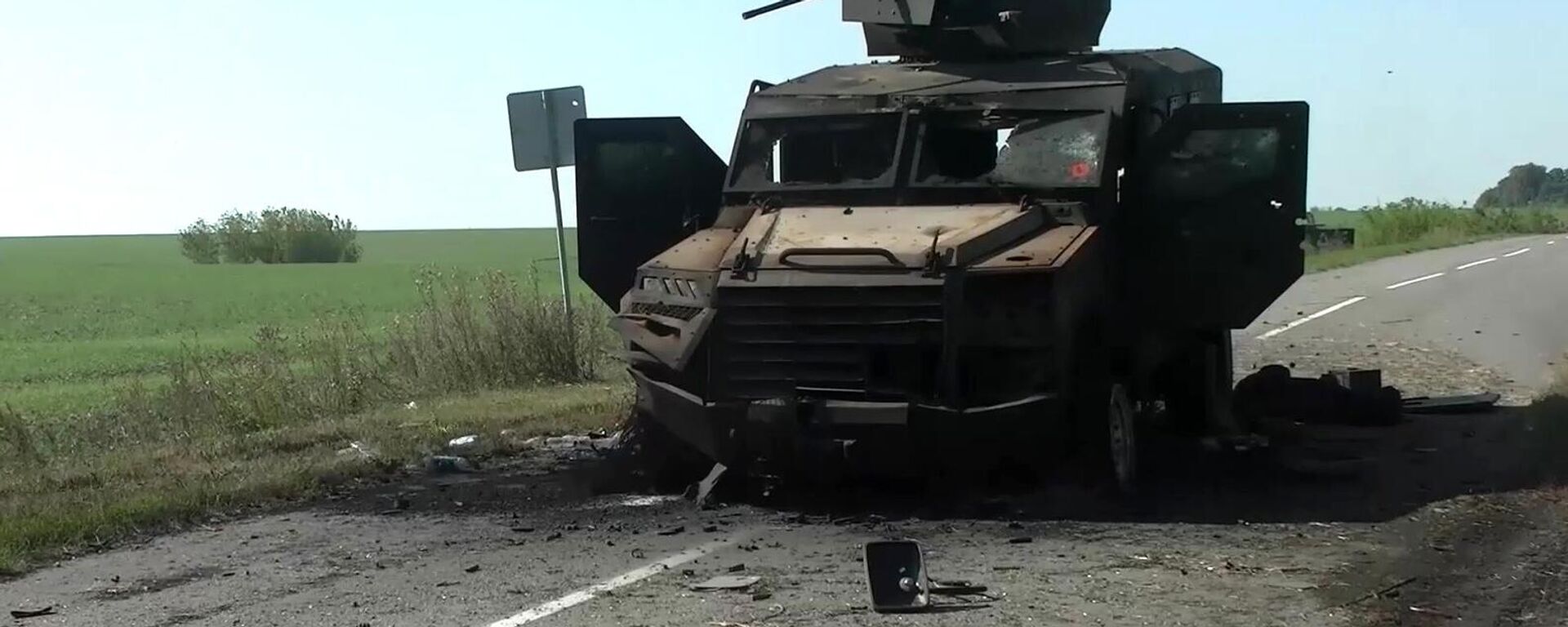Germany's Ruling Coalition Handed Harsh Wakeup From Regional Election Outcome
16:10 GMT 02.09.2024 (Updated: 12:11 GMT 03.09.2024)

© AP Photo / Jens Meyer
Subscribe
The triumph of the right-wing Alternative for Germany (AfD) party at the elections in Thuringia and Saxony states was not just a “vote of no confidence in the ruling traffic light coalition [referring to the three-party bloc],” says German political analyst and independent journalist Dr. Gregor Spitzen.
According to him, the elections essentially confirmed that Germany is still “politically divided” some 34 years after its reunification, with the “political dividing line” running right along what used to be a border between West Germany and East Germany.
“Despite attempts at ideological processing and direct indoctrination of the East German population by the mainstream media, East Germans, unlike West Germans, have retained the ability to think critically,” Dr. Spitzen elaborates. “Therefore, they tend to question the narratives of the anti-Russian media (95% of the German media market).”
He further points out that many of the older East Germans regard Russians as “at least good friends and useful trading partners” and, being “accustomed to seeing NATO as a threat to the world,” are well aware of “the role of the United States as the main culprit in fomenting the fratricidal conflict between Russia and Ukraine.”
With the Ukrainian conflict also inflicting “tangible financial losses” upon East Germany where many industrial enterprises were reliant on Russian resources and market, “it is therefore not surprising that the anti-war and pro-Russian narratives of the AfD and the BSW (Sahra Wagenknecht Alliance) resonated with East German voters.”
He does note, however, that AfD’s victory was largely “pyrrhic” as it lacks votes to form a majority government while the left-wing BSW would rather join forces with the conservative Christian Democratic Union (CDU).
“But the success of the AfD and the BSW sends an important message to the traffic light coalition government ahead of the 2025 general election: under its leadership, the country is moving in the wrong direction. And it has just over a year to listen to the voters and work on your mistakes,” Dr. Spitzen states.
Meanwhile, Berliner Telegraph magazine’s Chief Editor Aleksandr Boyko observes that the ruling coalition’s failure to tackle the immigration problem and to deal with rising crime, when people no longer feel themselves safe, further contribute to voters’ dissatisfaction with the powers that be in Germany.
Just like Dr. Spitzen, Boyko suggests that Thuringia’s East German past and close business ties to Russia make people there quite skeptical about the current anti-Russian hysteria narrative pushed by Berlin.
He also states that the election results definitely highlight the voters’ crisis of confidence in the mainstream CDU and SPD (Social Democratic Party).
“Though many analysts say that things will remain the same, I think that is untrue,” Boyko says. “Changes will take place soon and the government, whether it wants it or not, will have to change something.”
The German government, Boyko speculates, will likely lower various taxes, beef up border security and crack down on mechanisms that simplify the procurement of German citizenship by foreigners.
“Strangely, AfD and CDU, the parties that hate one another, both push for suspending the provision of German citizenship and residency [to foreigners], that is, to prevent people from obtaining residency in Germany easily, even though both parties say that they are fighting for people’s rights and so on,” he remarks.
Boyko also suggests that the recent drive by the authorities to install transgender restrooms in government and public buildings may also get sidelined.
“Germans always felt that the German economy is number one. Each German always told him or herself that we live better that anyone else. But now we gradually realize that it is not exactly so anymore, that maybe the French and the Spanish live as good as us,” Boyko adds. “To sum things up, we are slowly moving towards the economic, financial and status decline.”


